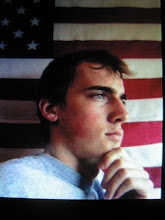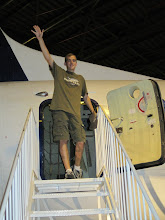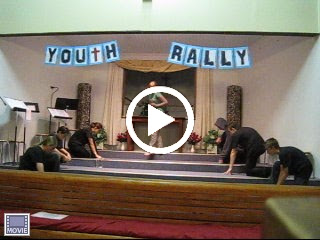Sadly for the British soldiers, their general wouldn’t listen to Washington, who knew how the French and Indians fought in the woods. He suggested to Braddock that he and his Virginians comb the forest before the British tried to cross a river. Braddock was offended and ordered his men to cross the river. The French and Indians attacked suddenly; the ambush was devastating. "In vain did their commander, and the undaunted Washington, endeavor to restore them to order and prevent their flight." [1]
The massacre of the British was terrible, "The slaughter at the Monongahela River continued for two hours. By then, 1,000 of the 1, 459 of the British soldiers were killed or wounded, while only 30 of the French and Indian Warriors firing at them were injured."[2]
The British were easy targets, especially their officers who rode on horses to distinguish their rank. "One by one, the chief's marksmen shot the mounted British officers until only one remained." [3] This one officer was Washington. The Indian chief ordered his braves to bring down the last officer. They fired again and again. Twice his horse was shot out from under him, and twice he remounted, four bullets pierced his coat, and several grazed his sword. The Indians were at a loss. "His safety in the midst of such attacks, astonished his savage enemies and they called him 'The Spirit-protected man who would be a chief of nations for he could not die in battle."[4]They then grew afraid as they realized this officer was being protected by someone Supernatural. "The shield of his God protected him."[5] Washington rallied the troops and led the retreat to save the little bit of the army that was left. He was hailed as a hero by the Colonists.
Rumors started to spread that he had been killed in the battle. While writing to his brother to dispel such rumors, he wrote about his miraculous survival, "See the wondrous works of Providence!"[6]
The next British officer who took command after Braddock, he had been killed in the fighting, didn't care much for Washington's advice either. The new general decided to pull the British army out of Virginia and winter them elsewhere, leaving Virginia unprotected. Governor Dinwiddie appointed Washington head of the Virginia militia.
The following winter was a hard one for the Virginians as the French and Indians raided across the border, "whose known rule of warfare is an undistinguished destruction of all ages, sexes, and conditions."[7] It was a terrible and trying time. Washington did his best, but they were hopelessly outnumbered and outgunned.
The British captured Fort Duquesne in 1758, thus securing the Virginia border. The British then went on to completely drive the French from the North American continent. Washington decided to resign again, now that the threat was over.
He married Martha Custis on his return to domestic life. He was happily married to her the rest of his life. He wore a miniature portrait of her around his neck. Through all of his dangers and adventures during the War of Independence, he always kept her close to his heart. When he was general of the Continental Army, she made it her duty to be by him during the winters and suffered along with him and his army from cold and hunger. Their marriage is truly a beautiful example of love, sacrifice, and devotion.
For some time Washington lived quietly at Mount Vernon, but events were taking place in Boston and London that would again call him to service. The British government was imposing severe taxes on the Colonies. The British claimed that it was only right the Colonists help pay for the Seven Years War. The Colonists protested; they had fought the French and Indians bravely and if it hadn't been for them, the British would have lost in the American theatre. The British government replied by imposing stricter regulations on them. The Colonists petitioned the King for relief, but he didn't listen. Instead, he raised the taxes, and started to try and take away their right to vote their own legislators into office, he kept a standing army in the colonies during a time of peace, and he took Americans from America and had them tried in Britain, and he pressed the young sailors into the British navy.
Tensions were rising and almost came to a head when a group of nervous British soldiers fired into an unarmed mob of protestors in Boston, which came to be known as the Boston Massacre. The American Colonists were furious. They stopped trading with Britain to avoid the taxes, which in turn infuriated the British. The British government then tried to tax the tea being shipped to America. Bostonians, dressed as Indians, raided the British ships with the tea and threw it into the harbor in 1773. Britain responded by putting an embargo on Boston and stationed a large body of soldiers there. The Americans started to stockpile weapons and prepared for fighting in 1774.
[1] Life of Washington (Anna C. Reed) p36
[2] Under God (Toby Mac and Michael Tait) p11
[3] Under God (Toby Mac and Michael Tait) p11
[4] Life of Washington (Anna C. Reed) p38
[5] Life of Washington (Anna C. Reed) p38
[6] Life of Washington (Anna C. Reed) p40
[7] Declaration of Independence
You cannot carry your cross while sitting on the fence
Remember Who We Are
Thursday, May 27, 2010
Subscribe to:
Post Comments (Atom)
votejaredn29









No comments:
Post a Comment